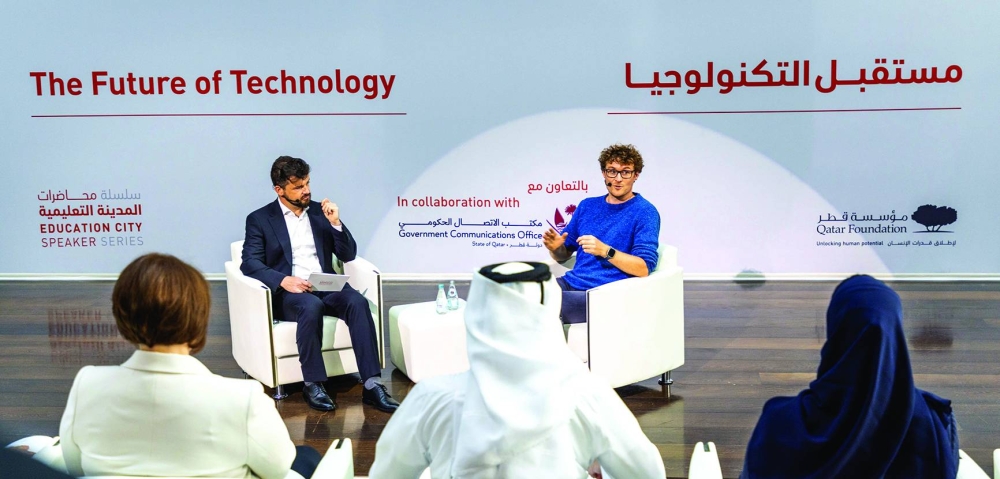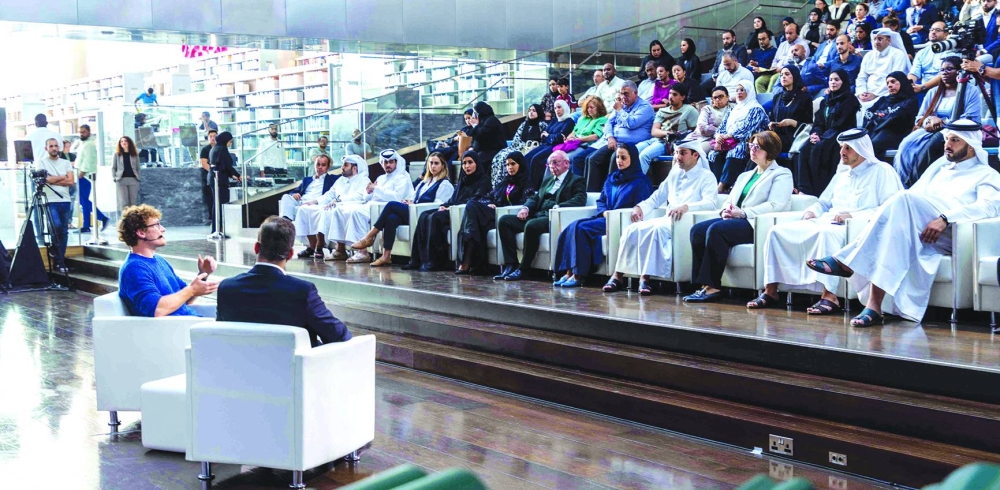The geographic centre of technology is shifting, Paddy Cosgrave, the chief executive and founder of global tech conference Web Summit – which will come to Qatar in 2024 – has said during the latest edition of Qatar Foundation (QF)’s Education City Speaker Series, as he highlighted that the Middle East is becoming a gateway connecting the world.
The talk, held in collaboration with the Government Communications Office (GCO), was attended by GCO director HE Sheikh Jassim bin Mansour bin Jabor al-Thani and moderated by Dr Marc Owen Jones, associate professor in Digital Humanities and Societies at Hamad Bin Khalifa University, a member of the QF.
“I think technology, and the geographic centres of technology of science and innovation, are like a pendulum. They’re always switching,” said Irish entrepreneur Cosgrave. “If you go back 1,000 years, more of the centre of mathematics and science was very much in the Middle East.”
“Skip forward half a millennium and beyond, much of it is in Western Europe – later in the US,” he continued. “So I think the biggest change over the next 10 years is that the shift in the world is clearly underway.”
“That shift is for the most part towards China, but it means that many other places in the world – including the Middle East, and including Qatar – are becoming far more important,” Cosgrave added. “And that’s a 500-year shift. The world is fundamentally changing.”
“And when I think of Qatar, I see it more as a gateway between the East and the West,” he said.
The Web Summit, which will take place in Qatar next year, is one of the world’s largest tech conferences.
With events held all over the world, it attracts startups, investors, and influential tech speakers.
“I think it’s very important for us, when organising and large gatherings in technology, to be global,” Cosgrave said. “Any location that you pick needs to be a gateway. It has to be very open minded. It has to have the infrastructure – airports, hotels, and venues.”
“And Qatar has absolutely all of that,” he pointed out.
Cosgrave said that, over the years, the Web Summit has worked to increase the number of women participants.
“I remember, 8-9 years ago, when the Web Summit was very young and very small, there was one very stark difference,” he said. “That was the (lack of) participation of women, which was the case in general at technology conferences. The participation was probably 90% male at the time.”
However, he said that with the introduction of specific programmes for female executives and female entrepreneurs at the Web Summit in Lisbon two years ago, the participation of women went up to 50%.
Another key focus of the Web Summit, according to Cosgrave, is inspiring the next generation, including university students, from all over the world, which is why scholarship programmes, in different guises, were developed to enable students to participate.
Offering advice to budding entrepreneurs, he said: “You don’t have to build a company that is worth $100bn. If you build a company that employs 50 people, five years from now, that’s an incredible success. That’s a really positive net contributor to the economy.”

Cosgrave making a point during his talk.

Some of the dignitaries at the event.
